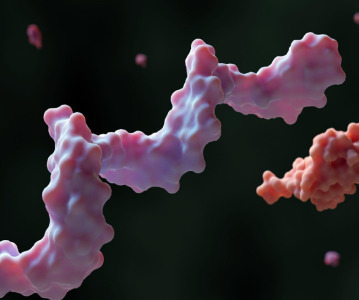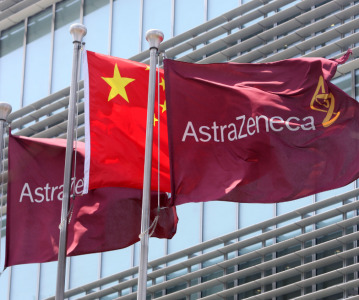EMA validates the MAA for avelumab for the treatment of metastatic Merkel cell carcinoma

If approved, avelumab, an investigational anti-PD-L1 IgG1, could be the first treatment indicated for patients with metastatic Merkel cell carcinoma.
Merck and Pfizer have announced that the European Medicines Agency (EMA) has validated for review Merck’s Marketing Authorization Application (MAA) for avelumab, for the proposed indication of metastatic Merkel cell carcinoma (MCC), a rare and aggressive skin cancer, which affects approximately 2,500 Europeans a year. Validation of the MAA confirms that submission is complete and begins the EMA’s centralized review process. If approved, avelumab, an investigational fully human anti-PD-L1 IgG1 monoclonal antibody, could be the first approved treatment indicated for metastatic MCC in the EU. Patients with metastatic MCC face a very poor prognosis, with less than 20% surviving beyond 5 years.
“While early-stage MCC can be generally managed with surgery, there are significant unmet needs in metastatic disease, where treatment options are severely limited,” said Luciano Rossetti, Executive Vice President, Global Head of Research & Development at the biopharma business of Merck. “We are pleased that the EMA is initiating its review of avelumab, as this means we are one step closer to bringing a much-needed new treatment option to European patients.”
“This is the first of what we hope will be many regulatory milestones for avelumab,” said Chris Boshoff, Senior Vice President and Head of immuno-oncology, early development and translational oncology, Pfizer Global Product Development. “We are committed to evaluating avelumab in a number of hard-to-treat cancers, and we believe it may have potential to be an important treatment option for patients with metastatic MCC.”
The avelumab metastatic MCC MAA submission is supported by data from JAVELIN Merkel 200, a multicenter, single-arm, open-label, Phase II study of 88 patients with metastatic MCC whose disease had progressed after at least one chemotherapy treatment. The JAVELIN Merkel 200 study represents the largest data set of any anti-PD-L1/PD-1 antibody reported in this patient population. These data were recently published in the Lancet Oncology.
The clinical development program for avelumab, known as JAVELIN, involves at least 30 clinical programs and over 2,900 patients evaluated across more than 15 different tumour types. In addition to metastatic MCC, these cancers include breast, gastric/gastro-esophageal junction, head and neck, Hodgkin’s lymphoma, melanoma, mesothelioma, non-small cell lung, ovarian, renal cell carcinoma and urothelial (primarily bladder).
Related News
-
News CPHI Online Trend Report – 2025 Pharma Packaging Prospects
The pharmaceutical packaging market has seen marked shifts in innovations, priorities, and focus over the last few years. With the rise of hit drugs like GLP-1 agonists and biologics requiring specialised packaging considerations, the strain of meeting... -
News Google-backed start-up raises US$600 million to support AI drug discovery and design
London-based Isomorphic Labs, an AI-driven drug design and development start-up backed by Google’s AI research lab DeepMind, has raised US$600 million in its first external funding round by Thrive Capital. The funding will provide further power t... -
News AstraZeneca to invest US$2.5 billion in Beijing R&D centre
Amid investigations of former AstraZeneca China head Leon Wang in 2024, AstraZeneca have outlined plans to establish its sixth global strategic R&D centre in China. Their aim is to further advance life sciences in China with major research and manufact... -
News US FDA adds haemodialysis bloodlines to devices shortage list
On March 14, 2025, the US FDA published an open letter to healthcare providers citing continuing supply disruptions of haemodialysis bloodlines, an essential component of dialysis machines. -
News Women in Pharma: Manufacturing personal and team success
Our monthly Women in Pharma series highlights the influential lives and works of impactful women working across the pharmaceutical industry, and how the industry can work towards making the healthcare industry and workplace more equitable and inclusive... -
News Pfizer may shift production back to US under Trump pharma tariffs
At the 45th TD Cowen annual healthcare conference in Boston, USA, Pfizer CEO Albert Bourla outlined the potential for Pfizer to shift its overseas drug manufacturing back to the US as pharmaceutical industry players weigh their options against Presiden... -
News Experimental drug for managing aortic valve stenosis shows promise
The new small molecule drug ataciguat is garnering attention for its potential to manage aortic valve stenosis, which may prevent the need for surgery and significantly improve patient experience. -
News Women in Pharma: Connecting accessible pharma packaging to patients – a Pharmapack Special
Throughout our Women in Pharma series, we aim to highlight how CPHI events encourage discussions around diversity, equity, and inclusion initiatives in the pharmaceutical industry.
Position your company at the heart of the global Pharma industry with a CPHI Online membership
-
Your products and solutions visible to thousands of visitors within the largest Pharma marketplace
-
Generate high-quality, engaged leads for your business, all year round
-
Promote your business as the industry’s thought-leader by hosting your reports, brochures and videos within your profile
-
Your company’s profile boosted at all participating CPHI events
-
An easy-to-use platform with a detailed dashboard showing your leads and performance
.png)






